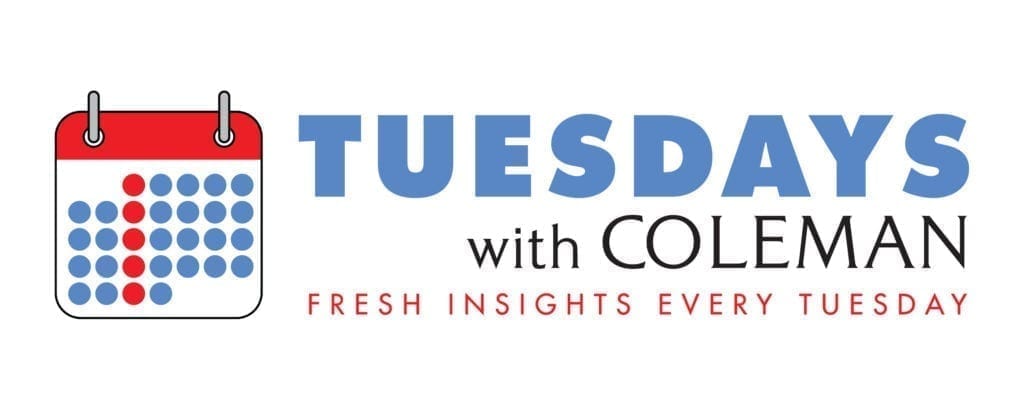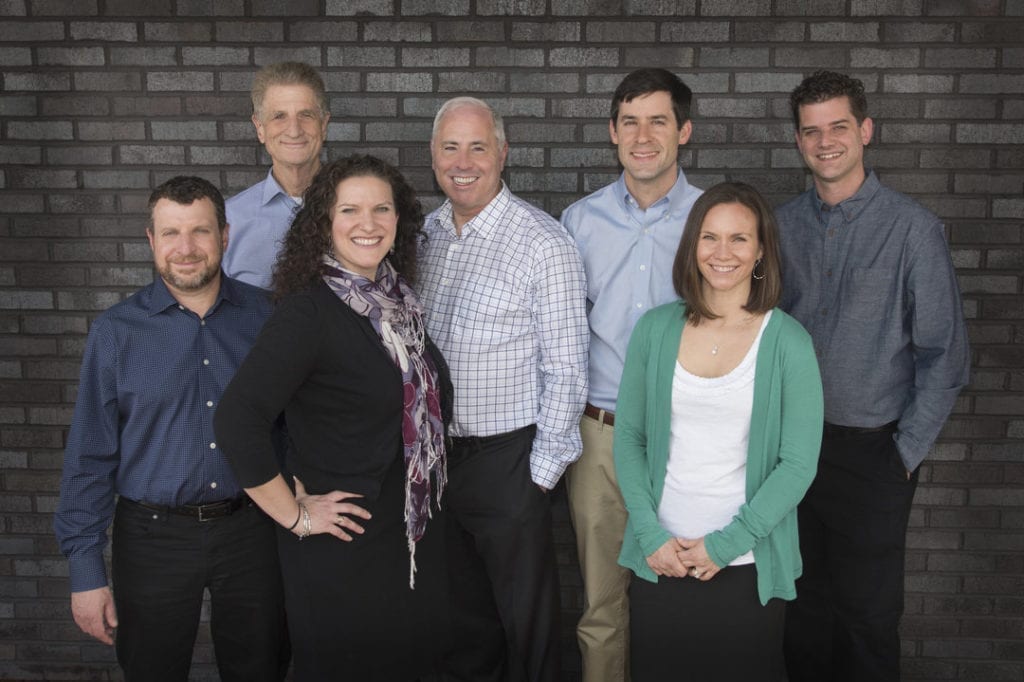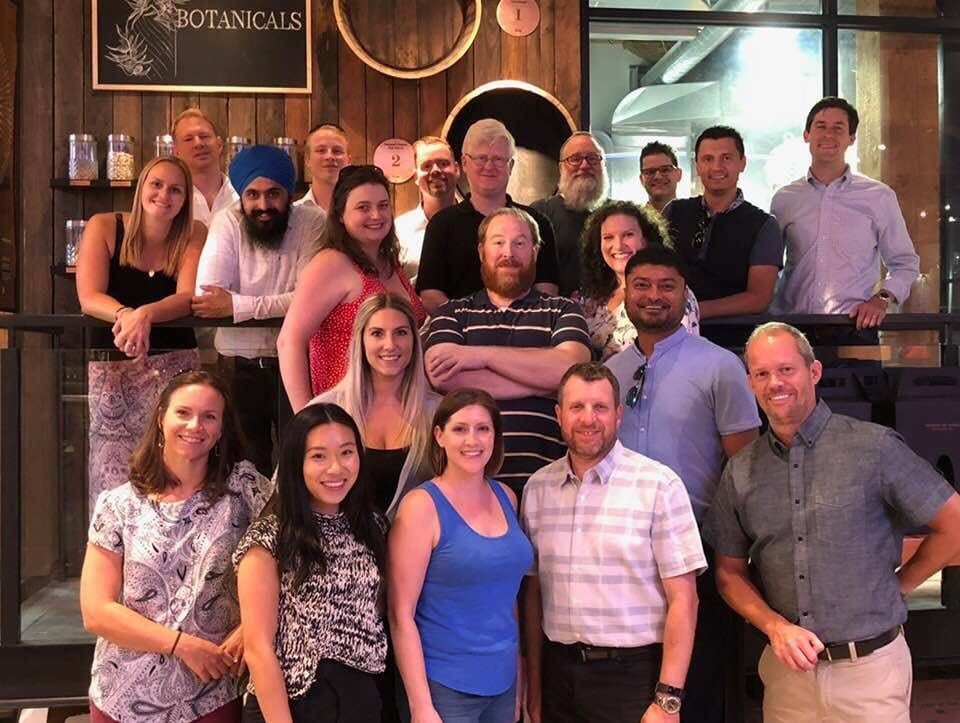
In May, I celebrated 25 years since joining Coleman Insights, providing me with an opportunity to reflect on the last quarter century. When Jon Coleman, one of the smartest—and more importantly, one of the most decent—people I have had the privilege of knowing, offered me the chance to join his company, I was flattered. Sure, the 29-year-old version of me already had more than a decade of experience in radio including six years at Arbitron, but it wasn’t long after I began working for Jon that I realized that I had a tremendous amount to learn.

This photo of me, Jon Coleman and Chris Ackerman was used extensively in Coleman marketing.
So, what have I learned? Far more than I can cover in one blog post, but a few key items stand out.
Perhaps the most important lesson I’ve learned is the importance of collaboration. When clients place their trust in me and my colleagues, it is vital to recognize that we don’t know everything and the best way we can help them is to listen closely when they share their goals and concerns. When we are truly collaborative and exchange ideas with the brilliant programmers, marketers and managers who we are fortunate to have as clients, we achieve even greater outcomes than we would without their input. I am sure I still don’t listen and collaborate as well as I aspire to, but I hope I’m getting better at it!
Another thing that I’ve learned working with clients is how to build brands. Strong, long-lasting brands almost always start with a great idea and then take a long time to build. I find it so gratifying when I can help our clients develop their great ideas into great brands and have seen first-hand the benefits they enjoy when this happens. Great brands allow those who manage them to avoid short-term thinking and chasing the latest “flash in the pan” trend; if they consistently deliver compelling content within the parameters of their brands, these managers win on a consistent basis.
I’ve also learned that doing research the right way is hard and is always evolving. There is a right way to acquire respondents, there is a right way to ask them questions and there is a right way to analyze the data we get from them—all of these elements are required to deliver the insights our clients need. Furthermore, the right ways to do these things in 2020 look a lot different than they did in 1995. I’ve also learned not to get frustrated when low quality research options enter the marketplace; there will always be a market for good work, and if we stay focused on delivering high quality insights, we will be rewarded with the loyalty of our clients and their ability to recognize our value.
Another thing I’ve learned is that a research company is only as good as the people it employs. Products, services, methodologies and technologies are important, but it is the people who design, analyze and deliver research projects and then help clients implement strategies based on them that truly make a difference. This has been driven home to me countless times over the years when clients tell me that they choose to work with us not because we have the best widget; they choose Coleman because they want the best brains on the job. Those brains—including mine, but also those of the many talented people I am fortunate with whom to work—have benefited from years of experience working with a dazzling array of audio brands in almost every situation imaginable and from the expertise that has been passed along by people like Jon Coleman, Chris Ackerman and Pierre Bouvard who built the company.
Obviously, I owe a great debt to Jon for the opportunity he gave me 25 years ago. I also want to thank my colleagues—past and present—for all they have taught me. We have an amazing team at Coleman Insights and the fact so many of my colleagues have been with the company for a decade or more is a testament to Jon’s philosophy of investing in people and giving them opportunities to learn and grow.

Today’s Coleman Insights consultant team (L-R): Me, Jon Coleman, Jessica Lichtenfeld, Sam Milkman, John Boyne, Meghan Campbell and Jay Nachlis.
All of these things I’ve learned, however, would be relatively meaningless without the tremendous support of our clients. Listing the many clients who have helped make me better at what I do would make this post unreasonably long, but I can say with great confidence that I have learned something from every one of our clients, and for that, I am grateful.
My favorite part of hitting the 25-year milestone is that it is just a stop along the way. I intend to keep getting better at doing this for many years to come. That will only happen if I continue to learn from the many smart people with whom I interact, which leads me to one piece of advice—make a lifelong commitment to learning. If you are as fortunate as I have been to have clients, colleagues and other mentors as your teachers, you will be as rewarded as I have been and continue to be.

